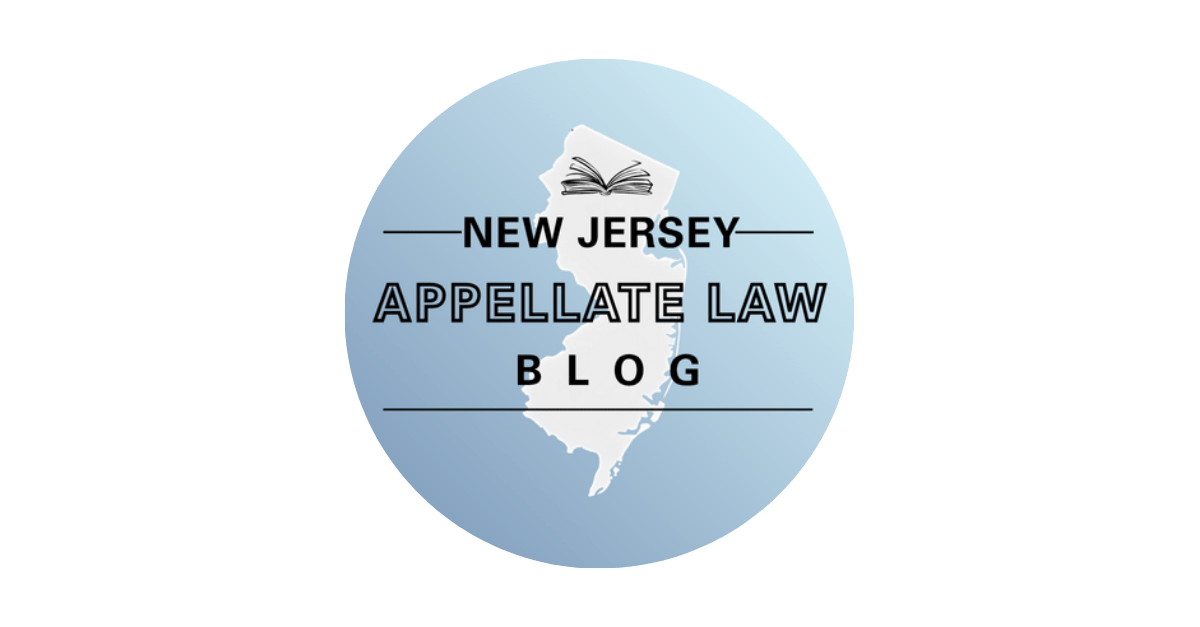The Supreme Court issued a Notice, available here, that proposes to revolutionize the process for briefing in the Supreme Court. If adopted, the new procedures would require substantial revisions to Rule 2:12, which currently governs Supreme Court briefing....
Johnson v. Wilkerson, ___ N.J. ___ (2025). Chief Justice Rabner's opinion for a unanimous Court follows on the Court's September 19, 2025 Order that upheld a ruling by Judge Sabatino in an emergent appeal by a candidate for a Roselle council seat. That Order stated that an opinion would follow....
The Supreme Court announced that it has granted review in three new matters. Two of them involve questions certified to the Court by the Third Circuit Court of Appeals, under Rule 2:12A. It is relatively rare for the Court to receive, and rarer for it to grant, petitions to decide certified questions, and it appears unprecedented for the Court to have granted review in two such cases at the same time. The other new case is a grant of leave to appeal to address one of the same issues presented in one of the certified question matters....
This blog has in the past noted anniversaries of Supreme Court decisions involving appeals from the Court's Committee on Character, on which I served for fifteen years. Today is another such anniversary, as on October 22, 1997, the Court decided In re Triffin, 151 N.J. 510 (1997)....
The Supreme Court announced that it has granted certification in two new cases. Both are criminal appeals. One is from a published opinion of the Appellate Division, while the other is from an unpublished per curiam decision by a three-judge panel....
On this date in 2005, the Supreme Court decided Gonzalez v. Safe & Sound Sec. Corp., 185 N.J. 100 (2005). The case involved a plaintiff who was shot in an apartment building in Atlantic City, which left him paralyzed. He brought a negligence suit against a number of defendants, including Atlantic City Housing & Urban Renewal Associates ("ACHURA"), the owner of the apartment building....
The Supreme Court announced that it has granted review in four new cases. Two of them are criminal matters. The other two involve eminent domain issues. One of the criminal appeals is before the Court on leave to appeal, the second grant of leave to appeal in the current Term. The Court granted certification in the other three matters....
The Supreme Court announced that it has granted leave to appeal in State v. Caneiro, a quadruple homicide case. The question presented, as phrased by the Supreme Court Clerk's office, is "Under the circumstances presented, where defendant's house was on fire, was the warrantless seizure of evidence from the garage justified under the exigent circumstances exception to the warrant requirement?"...
The final week of the 2024-25 Term was a quiet one. The Supreme Court did not issue any opinions. The Appellate Division published no opinions. As is common, there were not even many unpublished Appellate Division opinions....
This week saw one case decided by the Supreme Court and two published opinions of the Appellate Division. The Supreme Court case, decided by a 6-1 vote, presented an ex post facto issue arising out of amendments to the statute governing parole. The two Appellate Division decisions entailed more "core" criminal law issues. Here are summaries of those cases:...

